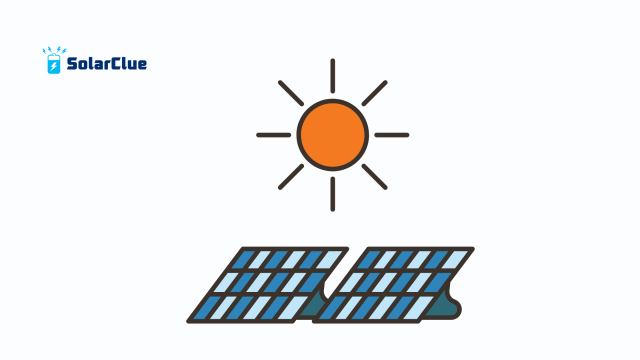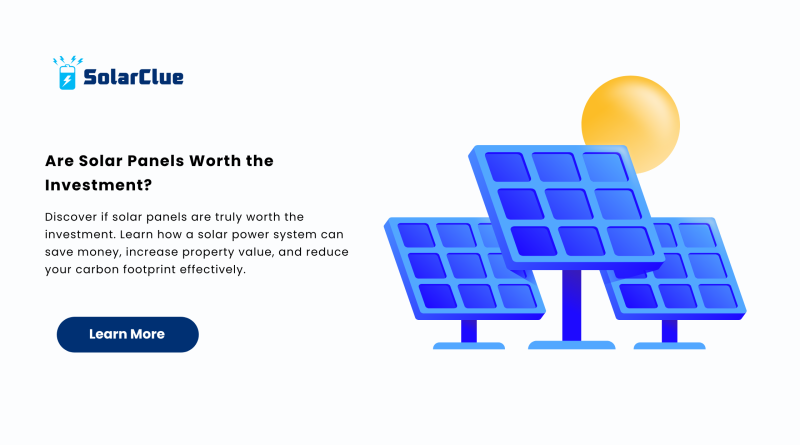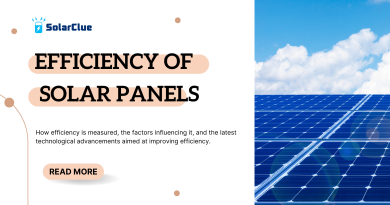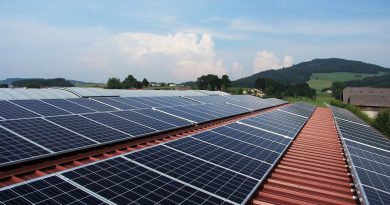Are Solar Panels Worth the Investment?
In a world increasingly concerned about climate change and rising electricity bills, many homeowners are turning to solar energy as a sustainable solution. The question arises—are solar panels worth the investment? With technology advancing rapidly and government incentives becoming more generous, now is the perfect time to examine whether switching to solar power makes financial and environmental sense. This comprehensive blog post will help you determine if a solar panel for home is the right choice for you.
Table of Contents
- 1 How Do Solar Panels Work?
- 2 Financial Benefits of Solar Panels
- 3 Environmental Impact
- 4 Common Myths About Solar Panels
- 5 Factors Affecting Solar Panel Investment
- 6 ROI Timeline for Solar Panels
- 7 Off-Grid vs On-Grid Systems
- 8 Choosing the Best Solar Panel
- 9 Maintenance and Lifespan
- 10 Real-Life Success Stories
- 11 Expert Opinions
- 12 When Solar May Not Be the Best Choice
- 13 Final Verdict: Are Solar Panels Worth the Investment?
- 14 FAQs
How Do Solar Panels Work?
Solar panels function by converting sunlight into electricity through photovoltaic (PV) cells. When sunlight hits these cells, it generates direct current (DC) electricity. An inverter then converts the DC into alternating current (AC), which powers your appliances. A complete solar power system typically includes panels, an inverter, mounting structures, optional battery storage, and a monitoring unit to track performance.
Financial Benefits of Solar Panels
One of the biggest advantages of investing in solar is the long-term financial gain. Although the initial setup cost may seem high, the savings accumulated over time make it an attractive option.
Reduction in Electricity Bills
Installing a solar panel for home can significantly lower or even eliminate your monthly electricity bills. Most homeowners save tens of thousands over the system’s lifespan, especially in regions with high energy tariffs.
Government Incentives and Subsidies
Many governments, including India’s, offer tax breaks, subsidies, and rebates that drastically reduce the upfront cost of solar power systems. These incentives are designed to encourage a shift toward clean energy and often make solar panels more accessible.
Increase in Property Value
Properties equipped with solar power solutions tend to fetch higher resale values. Studies show that energy-efficient homes attract more buyers and often sell faster. So, adding solar panels can be a profitable upgrade for homeowners planning to sell in the future.
Environmental Impact
Apart from financial benefits, solar power contributes to a cleaner planet. Unlike fossil fuels, it doesn’t release harmful pollutants or greenhouse gases.
Lower Carbon Footprint
By installing a solar panel for home, you can significantly reduce your household’s carbon emissions. On average, a typical solar home offsets the equivalent CO2 of planting over 150 trees annually.
Common Myths About Solar Panels

Despite their growing popularity, several misconceptions still surround solar panels.
“Solar Panels Are Too Expensive”
With dropping equipment costs and numerous financial aids, solar has never been more affordable. You can now install a solar power system at a fraction of the cost from just a few years ago.
“They Don’t Work on Cloudy Days”
While output may reduce slightly on cloudy days, modern best solar panels are highly efficient and capable of producing power even in low sunlight conditions.
Factors Affecting Solar Panel Investment
Before making the switch, consider a few important variables that can influence the success of your solar installation.
Roof Condition and Orientation
Roofs that face south or southwest and receive direct sunlight throughout the day are ideal for solar panels. The absence of shading from trees or buildings enhances system efficiency.
Energy Consumption Habits
Homes with higher energy usage will see quicker returns on their solar power system investment. By matching your consumption with production, you maximize your savings.
ROI Timeline for Solar Panels
Most homeowners recover their initial investment in solar panels within 6 to 10 years. Beyond that, you’re essentially generating free electricity for 15–20 years, depending on your system’s lifespan and maintenance.
Off-Grid vs On-Grid Systems
On-Grid Systems
These are connected to the local utility grid and are more economical. Any excess power generated can be sold back to the grid through a process called net metering.
Off-Grid Systems
Ideal for remote areas, these systems are completely independent and require battery storage. While they provide total energy autonomy, they are generally more expensive to install and maintain.
Choosing the Best Solar Panel
With so many options on the market, selecting the best solar panel can be overwhelming. Factors to consider include efficiency rate, warranty, temperature coefficient, and brand reputation. A higher-efficiency panel might cost more upfront but delivers better long-term performance.
Maintenance and Lifespan
Solar panels are low-maintenance. Occasional cleaning and yearly professional check-ups are usually sufficient. Most panels come with 25–30 year warranties and continue producing electricity efficiently throughout that period.
Real-Life Success Stories
Urban Home in Bangalore
After installing a 3kW solar power system, a Bangalore family reduced their monthly electricity bill from ₹4,500 to under ₹1,000. The system paid for itself in less than 6 years.
Remote Farmhouse in Rajasthan
With limited access to the grid, a farmer installed an off-grid solar panel for home system, achieving complete energy independence and uninterrupted irrigation.
Expert Opinions
Experts unanimously agree that solar power is one of the most promising investments for homeowners. Technological innovations, combined with dropping prices, make solar panels an increasingly attractive proposition.
When Solar May Not Be the Best Choice
While solar suits most households, there are exceptions. If you’re renting, plan to relocate soon, or your roof is heavily shaded, the ROI may not justify the investment. Always consult a local solar expert to assess feasibility.
Final Verdict: Are Solar Panels Worth the Investment?
Absolutely—solar panels are worth the investment for most homeowners. From slashing your electricity bills and boosting your property’s value to protecting the environment, the benefits are clear. Plus, with declining costs and government support, switching to solar is now more accessible than ever.
So, is solar your next smart move? Get all your questions answered and explore premium options at solarclue.com. And don’t miss out on expert tips and updates at blog.solarclue.com.
FAQs
1. How much do solar panels cost in India?
Prices vary by size and brand, but most systems range from ₹40,000 to ₹1,00,000 per kW, including installation.
2. Do solar panels work during monsoon or cloudy days?
Yes, solar panels still generate electricity, although their output may decrease slightly.
3. Can I run my air conditioner on solar power?
Definitely. With the right solar power system, you can power appliances like ACs, refrigerators, and washing machines.
4. What is the life expectancy of a solar panel?
Most solar panels last between 25 to 30 years with consistent efficiency and minimal performance loss.
5. Is solar power viable for apartments?
Yes. With proper permissions and a shared roof, even apartment complexes can benefit from solar energy.
Still wondering if solar panels are worth the investment? Take the leap toward a smarter, greener future—explore personalized solar solutions today at solarclue.com. Let your roof start working for you!



